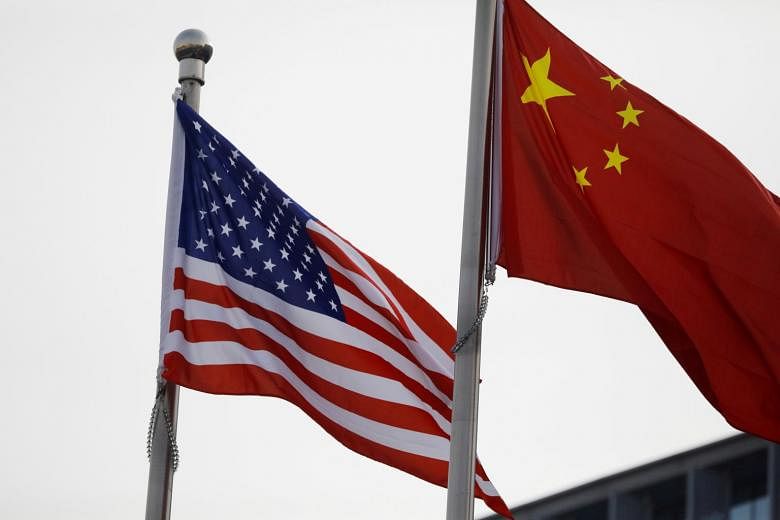WASHINGTON (BLOOMBERG) - The top diplomats from China and the US will showcase their diverging views on how to address regional and global crises at a United Nations Security Council event on Friday (May 7).
US Secretary of State Antony Blinken and China's Foreign Minister Wang Yi will be joined at the virtual session by several other foreign ministers as they debate how to strengthen the international system.
The meeting will be led by China, which holds the rotating presidency of the Security Council this month and has criticised US efforts to rally regional blocs in Asia and Europe against Beijing.
Blinken plans to use his speech to make clear that the US wants to defend a rules-based, international system which it sees as increasingly under threat by Beijing's actions in places like the South China Sea, Hong Kong and the Xinjiang region, senior State Department officials said.
Blinken's address will follow his meeting with allied leaders from the Group of Seven nations in London this week, where officials singled out China for everything from human rights abuses to its actions against Taiwan. China lashed out at the G-7 statement at the end of the meeting, criticising "clique politics" and urging Western nations to stay out of its affairs.
The world's most developed economies should "stop interfering in other countries' internal affairs, making groundless accusations in a condescending way and disrupting global epidemic cooperation," Foreign Ministry spokesman Wang Wenbin said.
"These attempts will never succeed."
Despite ascending to the Security Council presidency, China is increasingly under fire. Beijing decided to cancel an economic dialogue with Australia and its diplomats assailed New Zealand because lawmakers there declared human rights abuses are occurring in China's Xinjiang region. In the early weeks of the Biden administration, Beijing bristled at US efforts to raise the profile of the Quad - an alliance with Japan, India and Australia - that was seen as a rebuke of China.
Blinken will also use his UN speech on Friday to reassure allies that the US sees the the post-World War II institution as a critical player in the rules-based order the Biden administration says it supports, the officials said. That's meant to signal a shift from the Trump administration's "America First" approach, which saw it frequently clash with the UN and its organisations, withdrawing from the Human Rights Council and the World Health Organisation.
Much of the debate may be over which type of multilateralism is acceptable under different circumstances. China's UN envoy, Zhang Jun, took over the council presidency this week by saying he wants the world body to focus on the coronavirus pandemic, economic challenges, and climate change - areas which the US largely says it can reach common ground on with Beijing.
"It's becoming more and more evident that in tackling the current global crises, multilateralism represents the right way out," Zhang told reporters on Monday.
UN Secretary General Antonio Guterres spoke on Thursday with Chinese President Xi Jinping and expressed his wish for "enhanced cooperation between the United Nations and the People's Republic of China in all the pillars of the organisation's work - peace and security, sustainable development, including climate change and biodiversity, and human Rights," according to the UN spokesperson's office.
For the Biden administration, re-engaging constructively with the UN means showing up when major debates take place and laying out America's vision for international peace, a senior US official said. The idea is not to have a showdown with China but to use multilateral platforms such as the UN to push back against behaviours that undermine international norms, another official added.
"Our purpose is not to contain China, to hold it back, to keep it down," Blinken said in a interview with CBS News' 60 Minutes that was broadcast last Sunday. "It is to uphold this rules-based order that China is posing a challenge to. Anyone who poses a challenge to that order, we're going to stand up and defend it."

